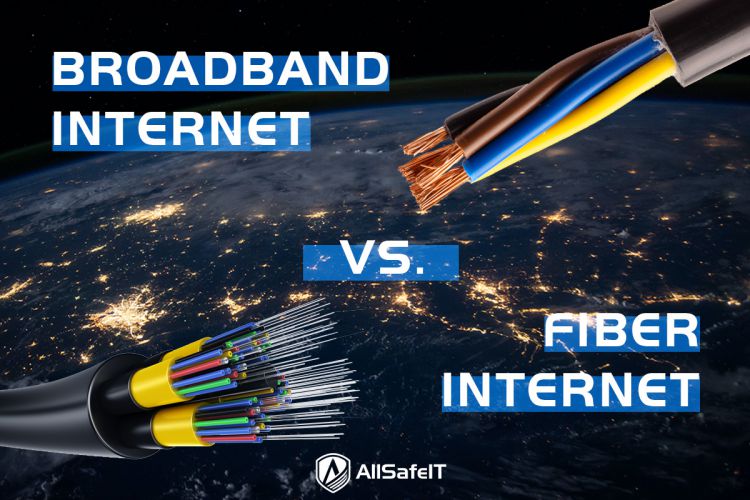In the fast-paced digital world of today, having dependable internet has become essential rather than optional. From streaming entertainment to remote work and smart home technology, our dependence on fast, stable connectivity has never been greater. While traditional broadband options like DSL and cable internet have served us for years, fiber-optic internet is quickly emerging as the superior choice. But what exactly makes fiber internet better? Let’s explore the key advantages.
 Blazing Fast Speeds
Blazing Fast Speeds
One of the most significant advantages of fiber internet is speed. Unlike traditional broadband, which relies on copper wires, fiber-optic internet uses light signals to transmit data through glass fibers. This allows fiber to support much higher bandwidth, delivering speeds that far exceed what most DSL or cable providers can offer. Whether you’re downloading large files, video conferencing, or gaming online, fiber’s ultra-fast speeds reduce buffering and lag to a minimum. If you’re looking for fast, reliable internet in a bustling city like New York, consider exploring fiber internet in New York City to experience the full benefits of cutting-edge connectivity.
Symmetrical Upload and Download Speeds
Another notable feature of fiber internet is symmetrical upload and download speeds. Traditional broadband typically offers faster download speeds than upload speeds, which can be a limitation for those who upload large files, stream content, or participate in video calls. Fiber internet, however, provides equal speeds for both uploading and downloading, making it a game-changer for professionals, content creators, and anyone working from home.
Greater Reliability
Fiber internet is known for its consistent performance. Copper-based broadband connections are often affected by weather conditions, electrical interference, and signal degradation over long distances. Fiber-optic cables are far more resilient to these issues, resulting in fewer outages and more stable connectivity. This reliability is particularly important for businesses or households that rely on internet access for critical tasks.
Future-Proof Technology
As our digital needs continue to grow, fiber internet is well-equipped to meet future demands. With its immense data capacity and scalability, fiber networks are considered future-proofed. Unlike traditional broadband, which may require frequent upgrades or infrastructure changes, fiber infrastructure is built to handle the next generation of internet technology, including smart cities, virtual reality, and advanced IoT applications.
Enhanced Security
Security is another key benefit of fiber internet. Since fiber cables do not radiate signals like copper wires, they are significantly more secure and harder to tap into. This added layer of protection is particularly valuable for businesses that handle sensitive data or anyone concerned about cybersecurity threats.
Increased Property Value
Believe it or not, access to fiber internet can actually boost the value of your property. Homebuyers are increasingly prioritizing fast, reliable internet when choosing a home, and properties with fiber-optic connections are often seen as more desirable. This makes fiber not only a practical upgrade but also a smart investment in the long term.
Final Thoughts
While traditional broadband may still serve many households, fiber-optic internet offers unmatched speed, reliability, and future-ready performance. As more areas gain access to fiber networks, upgrading becomes an easy decision for those who want the best possible internet experience. Whether you’re a casual user or a digital power user, fiber internet is the key to staying connected in a modern world.


